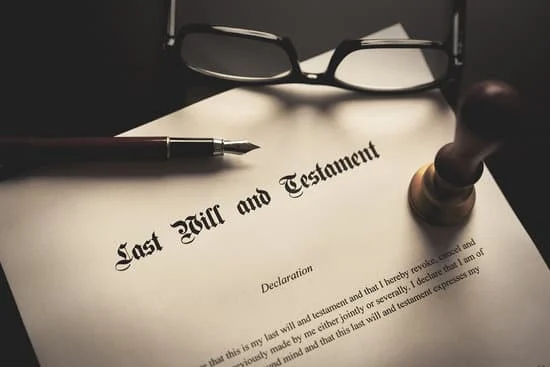
I’m going to give you the benefit of the doubt and assume that you already have a will in place. Sadly, nearly 60% of adults don’t and could have the state decide who gets their money and their children if they were to pass away. If that’s you, please stop reading this and get that done ASAP!
If you were responsible and got a will done several years ago, how do you know when it’s time to redo your will? When does it become outdated, irrelevant, or possibly harmful? Thankfully, estate law has become much simpler over the past few years, but there are some key mistakes to avoid that could leave your loved ones with a mess on their hands if something were to happen to you.
Relationships are funny things, and even more so when dealing with money and our kids. When you wrote your last will, you might have had a great relationship with your brother-in-law who now you’re not so certain about or who may not even be your brother-in-law anymore!
Check your will to make sure that the people who will take care of your children (guardians), money (trustees), and settling the estate (executors) are still the folks you would most trust with those tasks. Trustees and executors don’t need to be legal or financial professionals per se, but you want to be sure they are folks who will handle the responsibility well. You may also have grown children that can now help with some of these tasks. In either case, it’s likely time to redo your will.
Over the past several years, the amount of assets that can pass free of estate tax has ballooned. In addition, married spouses now have “portability”, essentially meaning that you can focus on one higher estate-tax-free amount rather than two individual ones. This translates into an estate of $6.46 million for singles and $12.92 million for married couples. Unless you plan on h
Having an estate higher than those thresholds, you’re more likely to overcomplicate things than anything. This can happen by having old wills that put assets into marital trusts, credit shelter trusts, and other irrevocable trusts to try to avoid estate taxes. While these won’t necessarily hurt you, they result in additional entities, tax returns, and headaches that you could be stuck with for a long time.
If you’re planning on having an estate of a few million dollars or less, you’re likely going to be fine with a simple will. So check your old will to see what happens to your money when you die and make sure it’s still appropriate.
If you made your will when your kids were young, you had no clue how they would be able to handle an inheritance. When they’re older, you have a better sense of their ability to steward wealth and whether it would be a blessing or a curse to them.
It may be that you would be leaving them too much money for their own good (this is way more common than leaving them too little in my opinion), or giving it to them too early (you can stagger distributions if need be) or late (at an age beyond when it would be most useful). So check your will to see who your beneficiaries are and when they would be entitled to receive how much money.
Giving money to your favorite church or charities is easy to do through your will, and you don’t have to worry about whether it will cause you to run out of money before you die! I always encourage folks to consider making a charitable bequest through their will as it could be the largest gift they ever get to make.
On occasion I’ve seen money left to a church that someone attended 20 years earlier, or to an organization that doesn’t even exist anymore. This should either be updated to current desires (can be done through a simple amendment, aka “codicil”, to your will) or left to a donor advised fund at a public foundation such as the National Christian Foundation. If you set up a “legacy fund” at NCF, you can leave a portion of your estate to your fund, and then direct where you want the money to go through your giving fund. This prevents you from needing to update your will in the future if your desires were to change again as you can just update your legacy fund online. You can also leave your heirs as successor advisors to the fund and let them decide where some or all of the gifts go to let them be a part of the stewardship process.
We also want to make sure you’re aware that while we’re not attorneys and don’t draft estate documents, we have a great partnership with My Advocate and can offer discounted pricing for online estate document preparation, including wills, revocable trusts, and ancillary documents. We can walk you through the process and review your documents before you sign them to help make sure everything is in good order. If you’d like to stop delaying and get the process started, just shoot us a line and we’d be glad to assist!
BACK TO NEWS